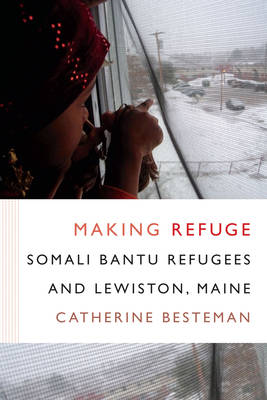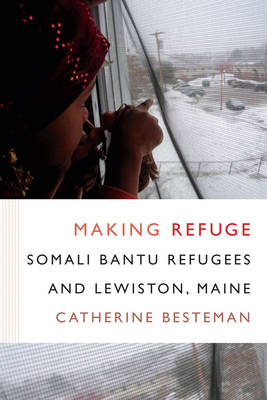
Bedankt voor het vertrouwen het afgelopen jaar! Om jou te bedanken bieden we GRATIS verzending (in België) aan op alles gedurende de hele maand januari.
- Afhalen na 1 uur in een winkel met voorraad
- In januari gratis thuislevering in België
- Ruim aanbod met 7 miljoen producten
Bedankt voor het vertrouwen het afgelopen jaar! Om jou te bedanken bieden we GRATIS verzending (in België) aan op alles gedurende de hele maand januari.
- Afhalen na 1 uur in een winkel met voorraad
- In januari gratis thuislevering in België
- Ruim aanbod met 7 miljoen producten
Zoeken
€ 45,95
+ 91 punten
Uitvoering
Omschrijving
How do people whose entire way of life has been destroyed and who witnessed horrible abuses against loved ones construct a new future? How do people who have survived the ravages of war and displacement rebuild their lives in a new country when their world has totally changed? In Making Refuge Catherine Besteman follows the trajectory of Somali Bantus from their homes in Somalia before the onset in 1991 of Somalia's civil war, to their displacement to Kenyan refugee camps, to their relocation in cities across the United States, to their settlement in the struggling former mill town of Lewiston, Maine. Tracking their experiences as "secondary migrants" who grapple with the struggles of xenophobia, neoliberalism, and grief, Besteman asks what humanitarianism feels like to those who are its objects and what happens when refugees move in next door. As Lewiston's refugees and locals negotiate coresidence and find that assimilation goes both ways, their story demonstrates the efforts of diverse people to find ways to live together and create community. Besteman's account illuminates the contemporary debates about economic and moral responsibility, security, and community that immigration provokes.
Specificaties
Betrokkenen
- Auteur(s):
- Uitgeverij:
Inhoud
- Aantal bladzijden:
- 352
- Taal:
- Engels
- Reeks:
Eigenschappen
- Productcode (EAN):
- 9780822360445
- Verschijningsdatum:
- 5/02/2016
- Uitvoering:
- Paperback
- Formaat:
- Trade paperback (VS)
- Afmetingen:
- 147 mm x 229 mm
- Gewicht:
- 453 g

Alleen bij Standaard Boekhandel
+ 91 punten op je klantenkaart van Standaard Boekhandel
Beoordelingen
We publiceren alleen reviews die voldoen aan de voorwaarden voor reviews. Bekijk onze voorwaarden voor reviews.









